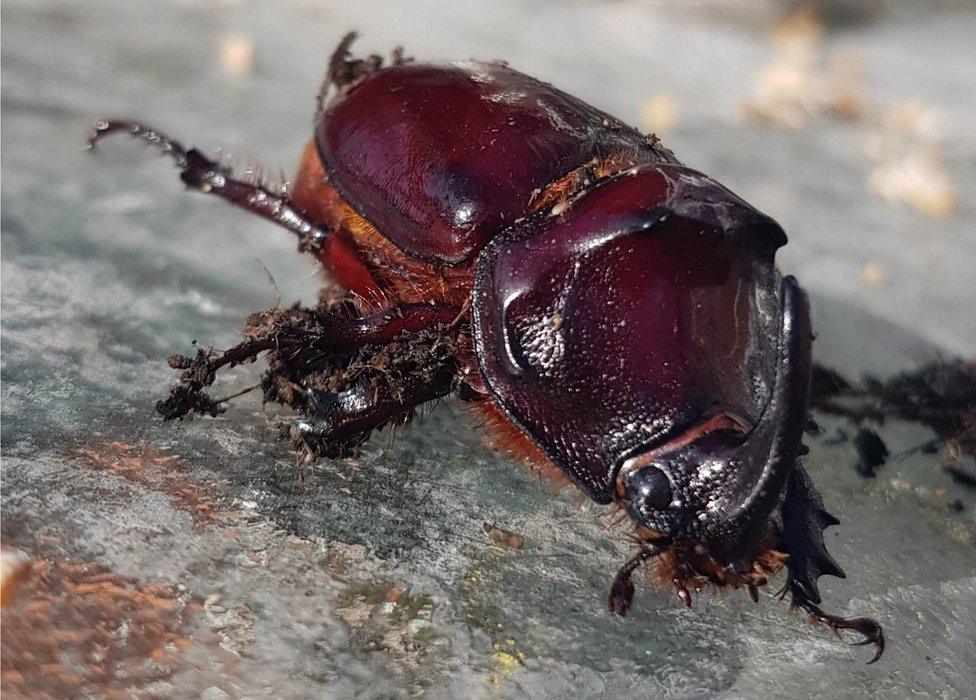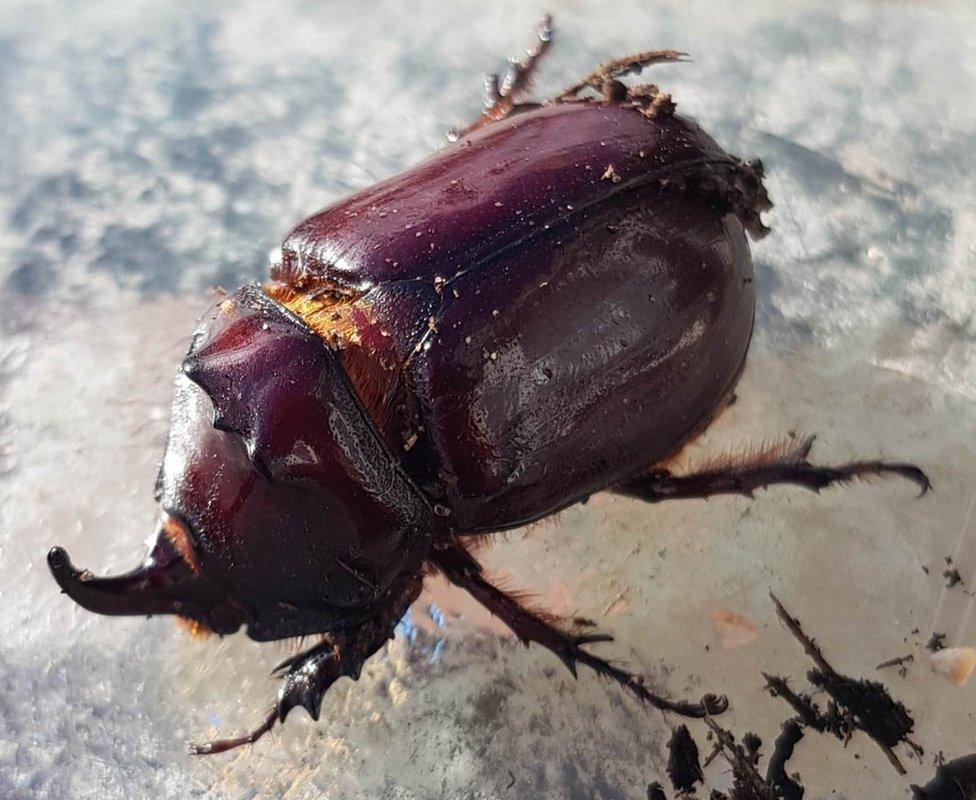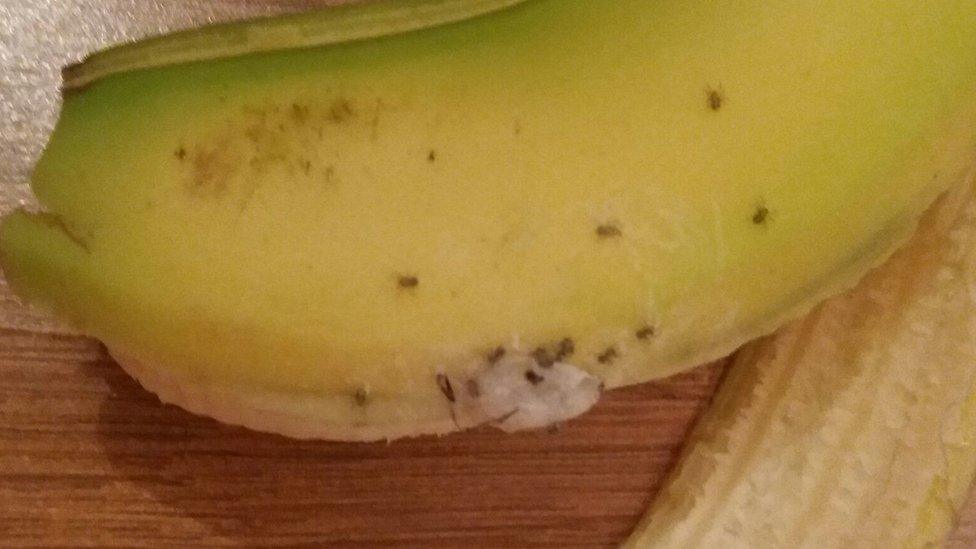European Rhinoceros Beetle found in County Durham fruit tree
- Published

Kay Willis found this European Rhinoceros Beetle in her supermarket fruit tree
A European Rhinoceros Beetle has been found in the UK, where it is not a native species, after stowing away in a potted plant.
Kay Willis, from Chester-le-Street in County Durham, discovered the 2in (5cm) creature in the soil of a fruit tree bought at a local supermarket.
It had survived the tree's plastic wrapping and being soaked in water before planting.
"I named him George, because George was my favourite Beatle," Ms Willis said.
"As I planted [the tree] in a big plant pot I saw what I thought was a lump of wood, which you sometimes get in compost."
When she realised it was a beetle she thought she had "drowned the poor little soul".
But five minutes in the sun while she carried on gardening revived it.

Kay Willis bought the young fruit tree from a local supermarket
Widespread near the Mediterranean Sea, the European Rhinoceros Beetle is not thought to be an invasive threat to UK species.
But invertebrate conservation charity Buglife said its appearance highlighted a weakness in current biosecurity measures and warned of the risks of "horticultural hitchhikers".
David Smith, from the charity, said: "While it is fascinating to observe unfamiliar species of insects in the UK, it is extremely concerning that species such as large as the European Rhinoceros Beetle can make their way here undetected in products."
The charity is calling on the government to ban the importation of products containing soil to protect native wildlife.
The fruit tree in question had been grown and packaged in The Netherlands.

Kay Willis said the beetle returned to a beautiful conker colour once it had recovered
Ms Willis said she knew not to release a non-native species into the wild and contacted Northumberland Zoo who offered to rehome the beetle, external.
Her granddaughter had queried the 70-mile round trip to the zoo as "a long way to go for a beetle", Ms Willis said.
"I said 'yes, but he's entitled to live and I couldn't look after him. So that was the best place for him'."
The 66-year-old said she had been fascinated by invertebrates since childhood.
"When other girls were playing with dolls and things I was out in the garden, digging up worms and beetles," she said.

Follow BBC North East & Cumbria on Twitter, external, Facebook, external and Instagram, external. Send your story ideas to northeastandcumbria@bbc.co.uk, external.
Related topics
- Published4 September 2013
(c)angiehill.jpg)
- Published2 May 2017
